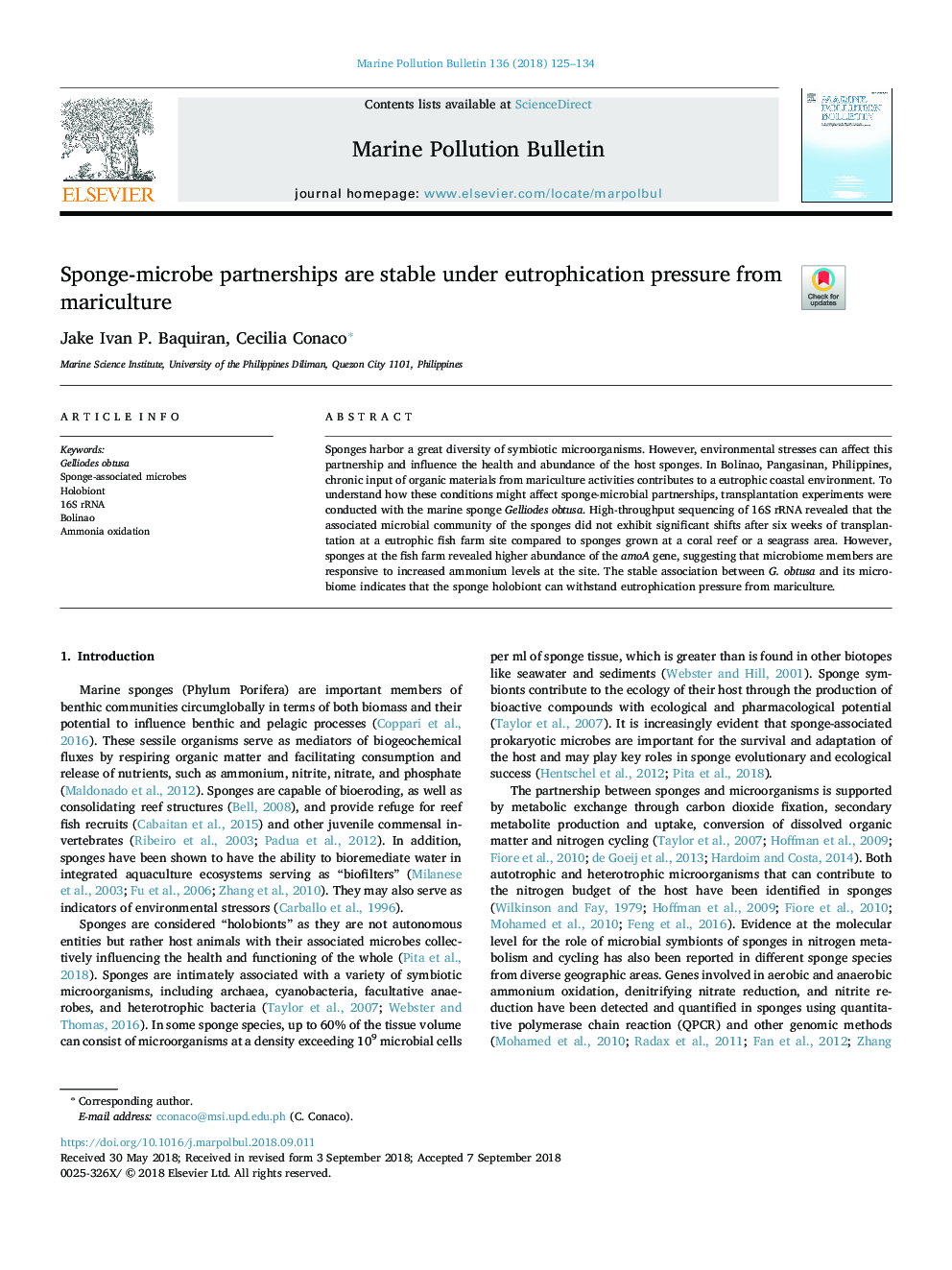| Article ID | Journal | Published Year | Pages | File Type |
|---|---|---|---|---|
| 10149691 | Marine Pollution Bulletin | 2018 | 10 Pages |
Abstract
Sponges harbor a great diversity of symbiotic microorganisms. However, environmental stresses can affect this partnership and influence the health and abundance of the host sponges. In Bolinao, Pangasinan, Philippines, chronic input of organic materials from mariculture activities contributes to a eutrophic coastal environment. To understand how these conditions might affect sponge-microbial partnerships, transplantation experiments were conducted with the marine sponge Gelliodes obtusa. High-throughput sequencing of 16S rRNA revealed that the associated microbial community of the sponges did not exhibit significant shifts after six weeks of transplantation at a eutrophic fish farm site compared to sponges grown at a coral reef or a seagrass area. However, sponges at the fish farm revealed higher abundance of the amoA gene, suggesting that microbiome members are responsive to increased ammonium levels at the site. The stable association between G. obtusa and its microbiome indicates that the sponge holobiont can withstand eutrophication pressure from mariculture.
Related Topics
Physical Sciences and Engineering
Earth and Planetary Sciences
Oceanography
Authors
Jake Ivan P. Baquiran, Cecilia Conaco,
